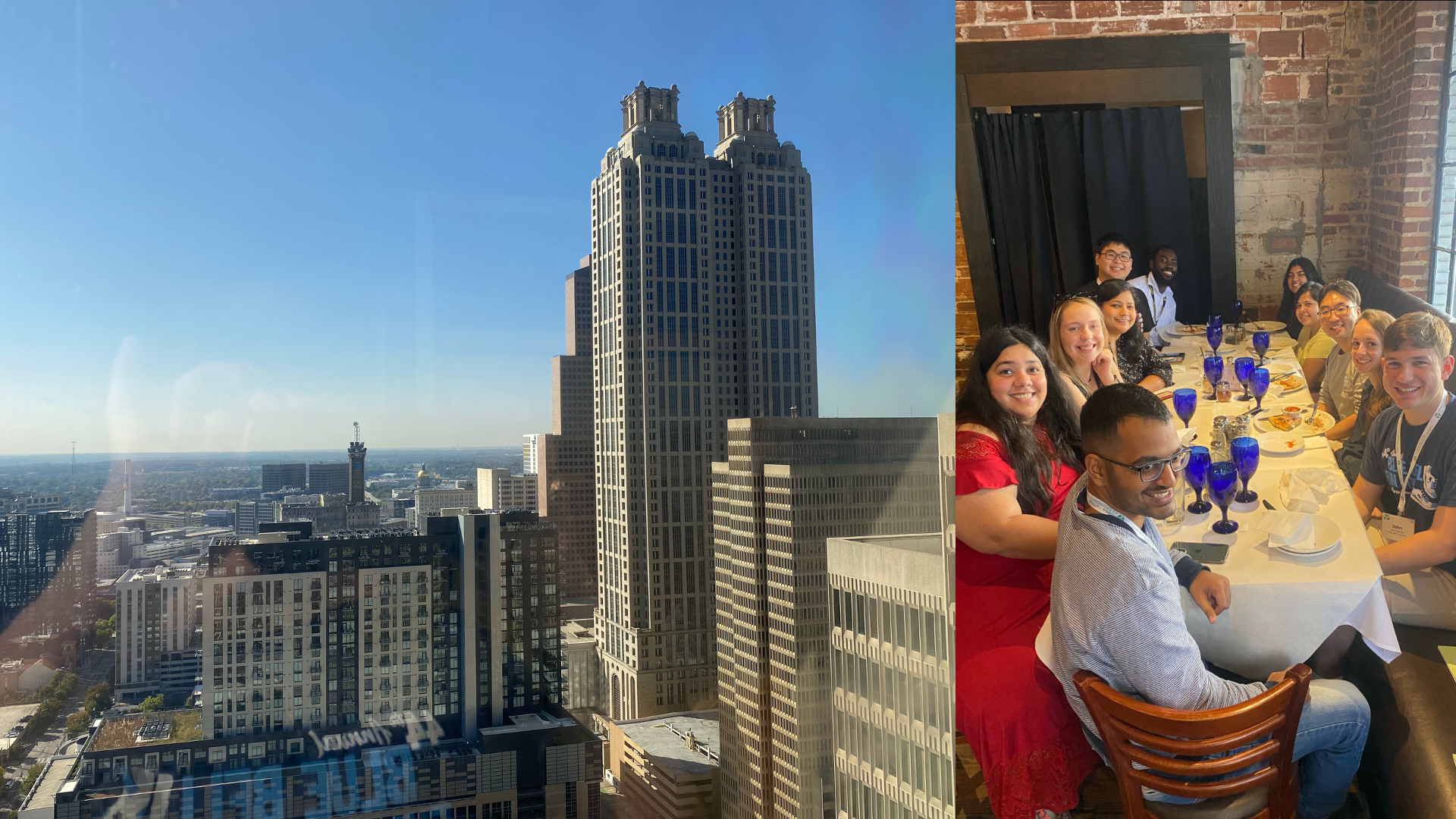What a successful week at the HFES – Human Factors and Ergonomics Society International Meeting in Atlanta, Georgia! A variety of special sessions, from workshops to keynotes to panels, provided the opportunity to learn from thought leaders in the field of human factors and ergonomics and the industries we shape. Ranging from Human-Robot Interaction, Training, Occupational Ergonomics, Exoskeletons, and so much more – the NeuroErgo lab had the wonderful opportunity of sharing our research during Techincal Group Sessions and Poster presentations.
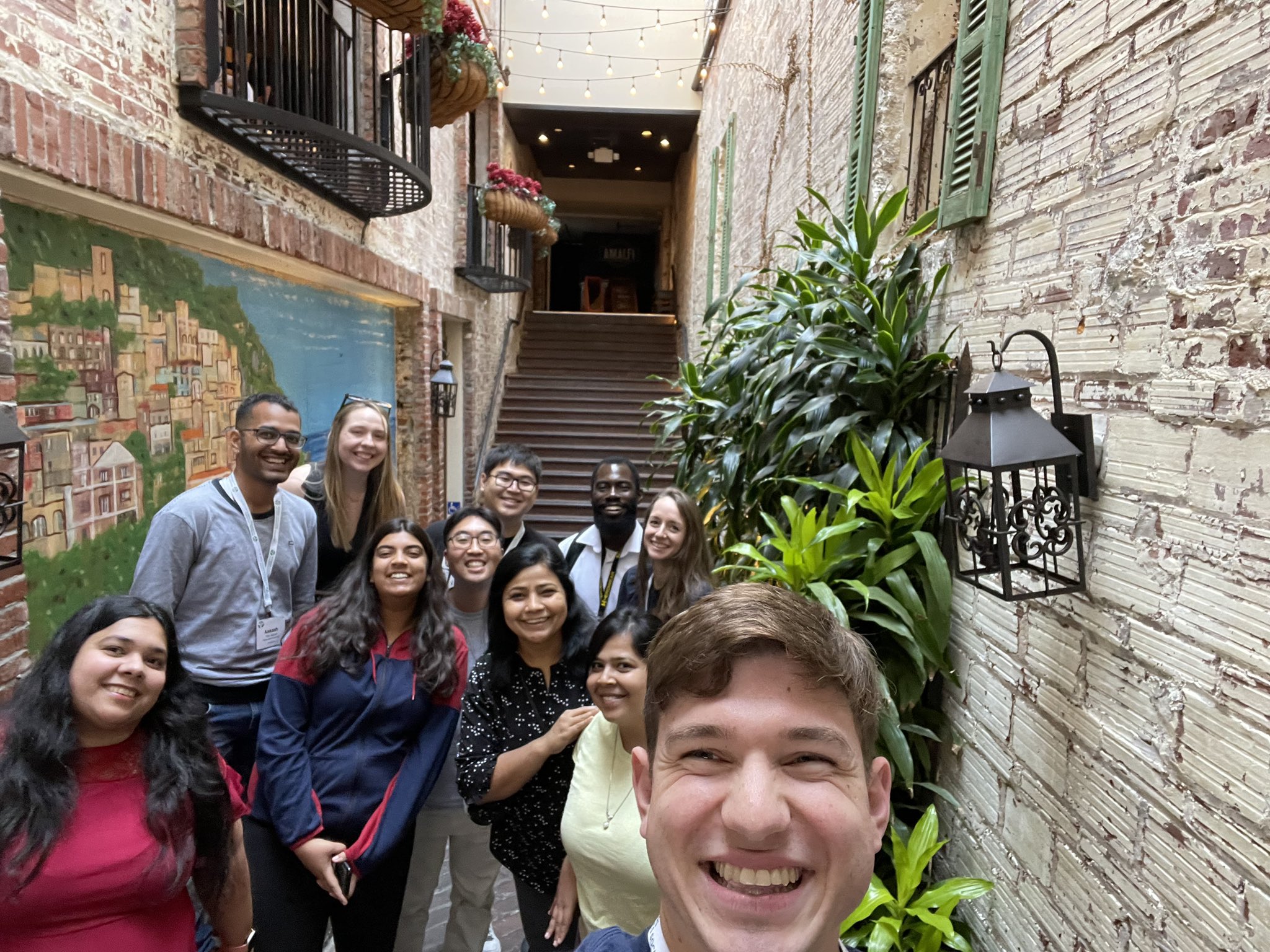
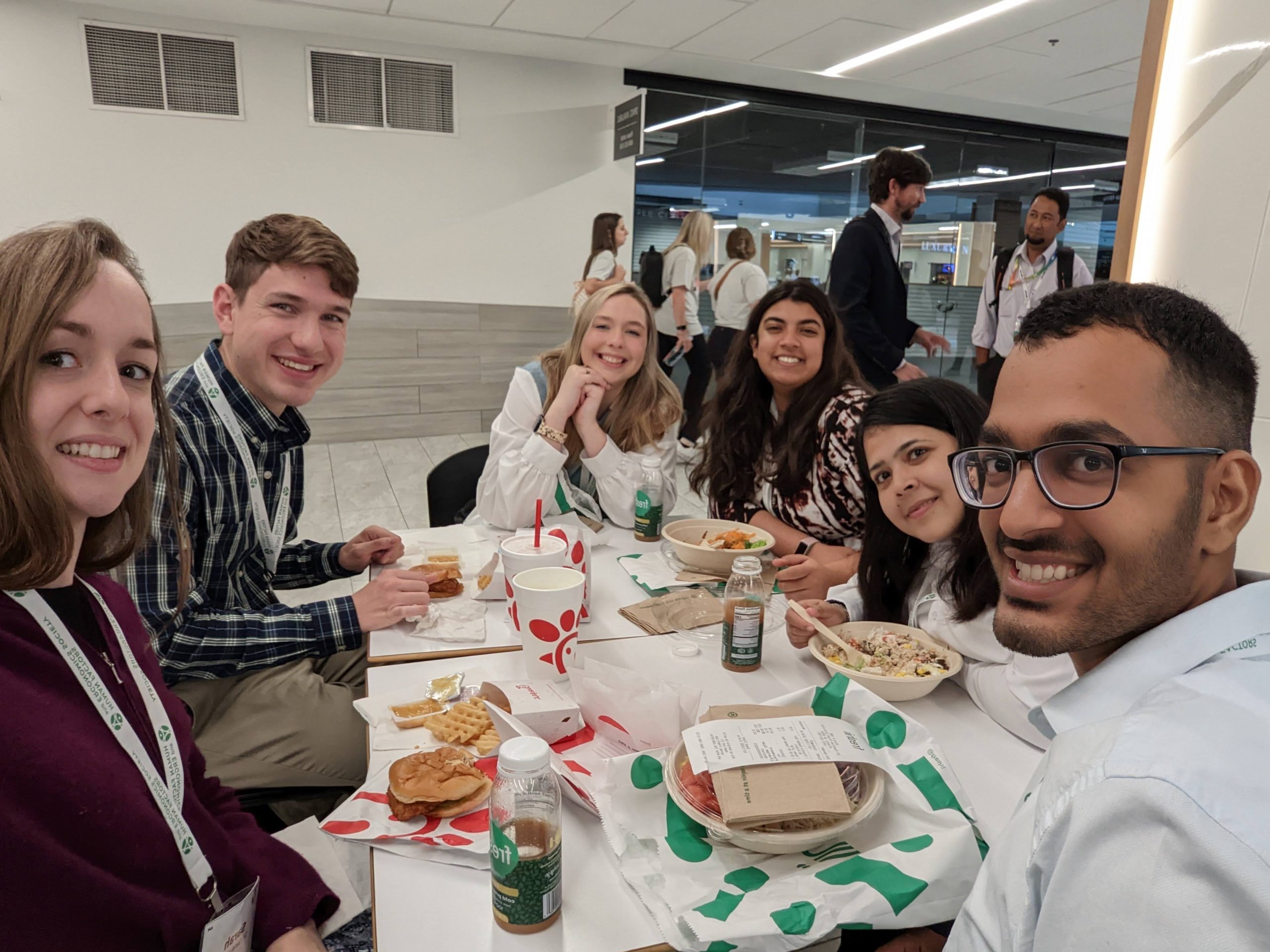
We also got to see our friend, Dr. Sarah Hopko! It was nice to catch up and hear about work-life and see what she had been up to! We look forward to seeing you again in the near future!
We started off the conference with a bang! Oshin Tyagi and Ranjana Mehta were awarded the Human Factors Prize for their contribution towards equity and inclusion at the Opening Award Ceremony. The study captured unique sex-specific causal brain dynamics associated with fatigue in older men and women! We are so thankful that HFES encourages and recognizes such efforts toward Diversity, Equity, and Inclusion and fosters those commitments into the best practices in research. Oshin also was awarded the HFES student members with honors. Way to go!
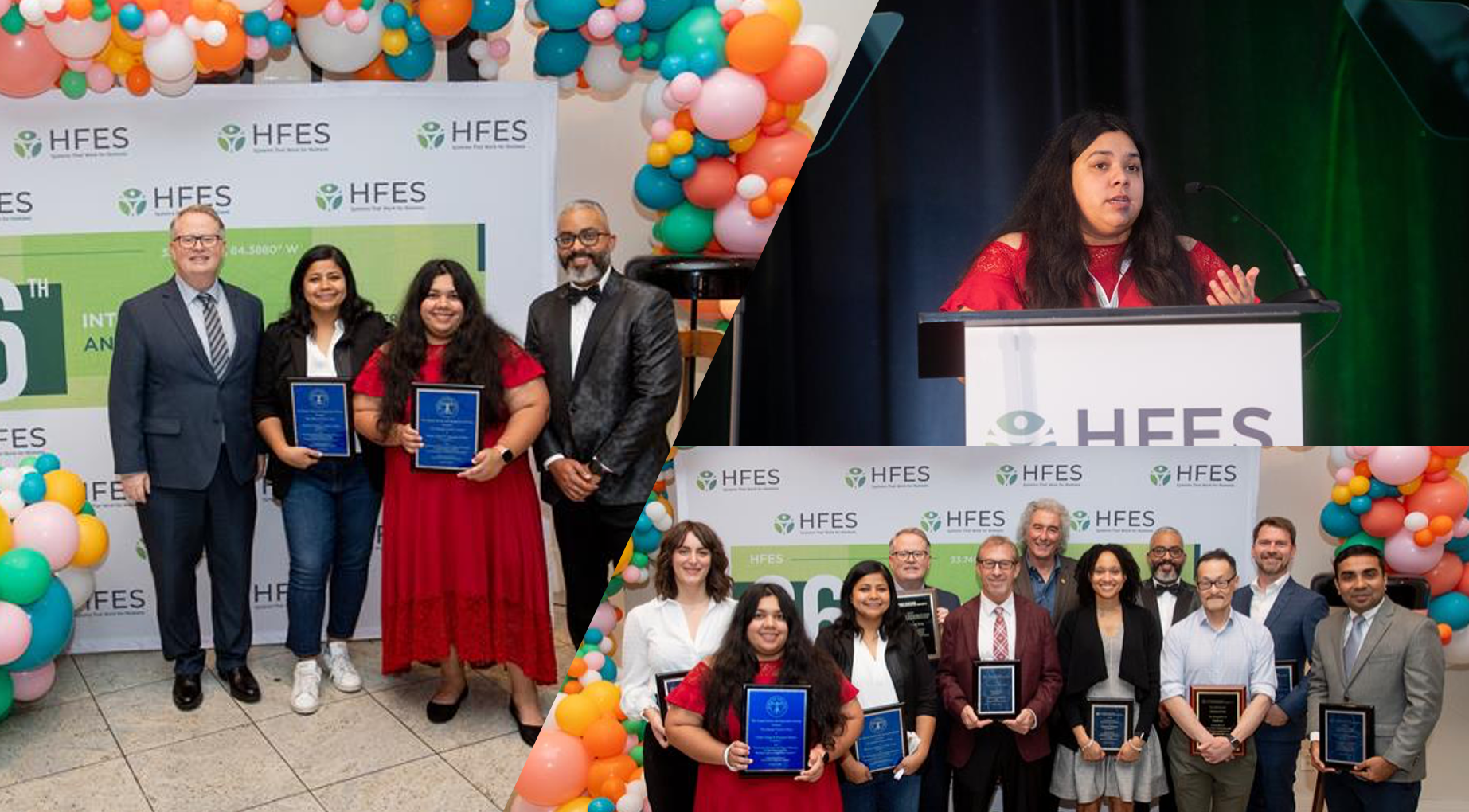
The excitement did not slow down for day two – Aakash Yadav and Yinsu Zhang were awarded the HART Best Video in the Human–AI–Robot Teaming (HART) Technical Group. This work focuses on understanding the effect of trust in automation using a multi-modal brain-behavioral approach. The participants worked collaboratively with a UR10 robot to assemble planetary gear. Continuous measures of the brain (functional near-infrared spectroscopy), physiology (electrocardiography, eye-tracking, electrodermal activity), and behavior (videorecording) were used to understand the differences in trusting and distrusting conditions. You can watch the video here! Thank you to the HART Technical Group for the recognition and efforts for such activities!
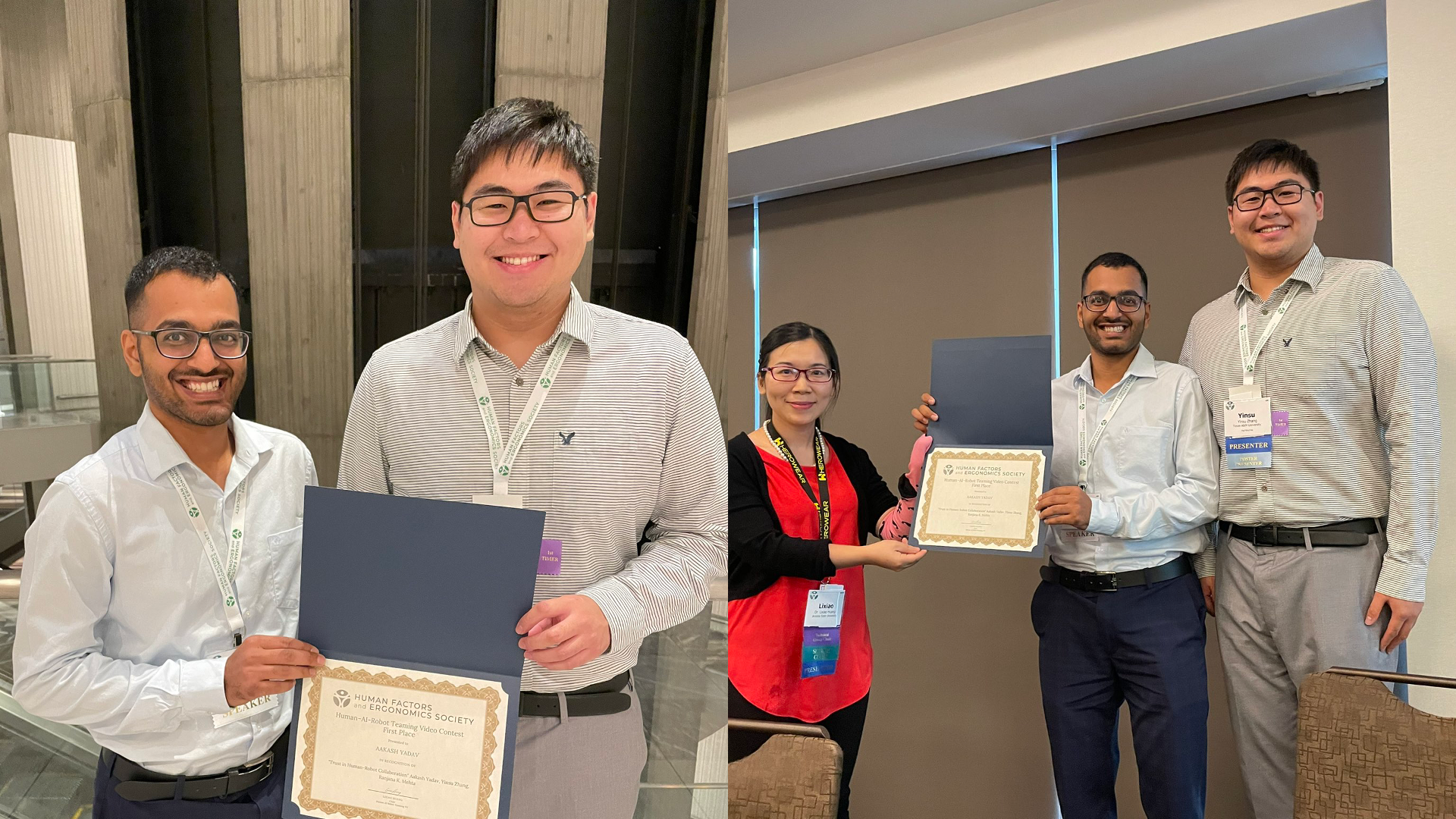
Last but certainly not least, John Hayes was awarded the Best Student-Authored Paper Award in the Training Technical Group. His work focuses on identifying the early predictors of learning in VR-based drone training. Thank you to the Training Technical Group for the recognition.
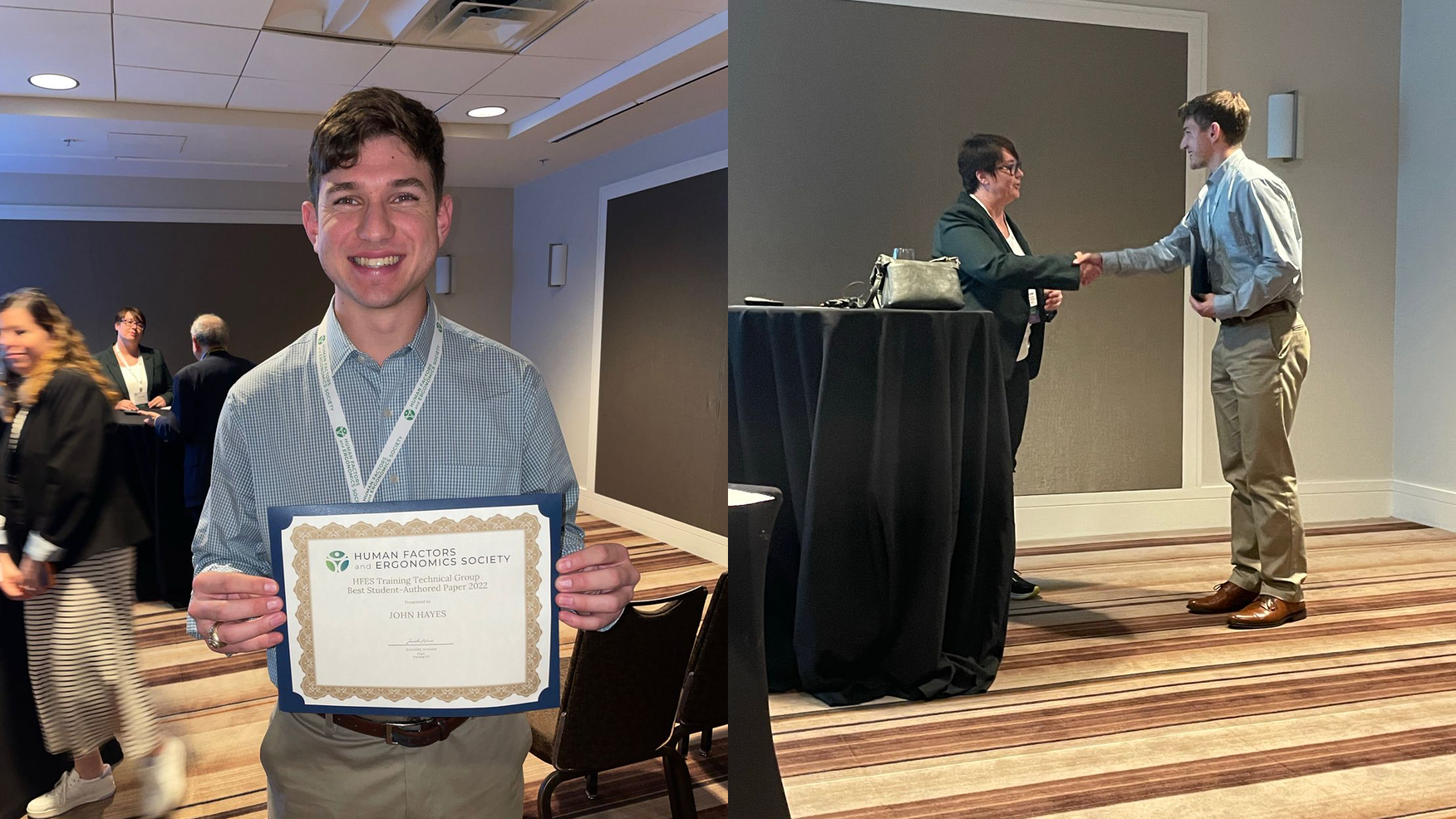
Many students had the opportunity to showcase their research through lectures and presentations in their Technical Groups and other various sessions. We had 11 lectures, 4 posters, and 1 panel. See below for their presentation topics!
Ranjana Mehta – Panel: Learning Environments with Augmentation and Robotics for Next-gen Emergency Responders (LEARNER) – Human-Centered Intelligent Training for Emergency Responders
Oshin Tyagi – OE3: “Sex Differences in Neuromuscular Fatigue Mechanisms in Older Adults” and HFES Best Paper Lectures- Special Session II: “Uncovering Neuromuscular Fatigue Difference in Older Women and Men: Shedding Light on Causal Brain Dynamics” and LBR105s1: Insights on “neck up” impacts of low back exoskeletons for patient handling tasks: Shedding light on the brain
Shivangi Dwivedi – T3: “Comparing the efficacy of AR-based training with video-based training”
Aakash Yadav – HART4: “Interplay of Cognitive Fatigue and Trust in Human-Robot Collaboration”
Yinsu Zhang – HART4: “Capturing Dynamic Trust Metrics during Shared Space Human-Robot Collaboration: An eye-tracking approach”
John Hayes – T3: “Identifying Early Predictors of Learning in VR-based Drone Training”
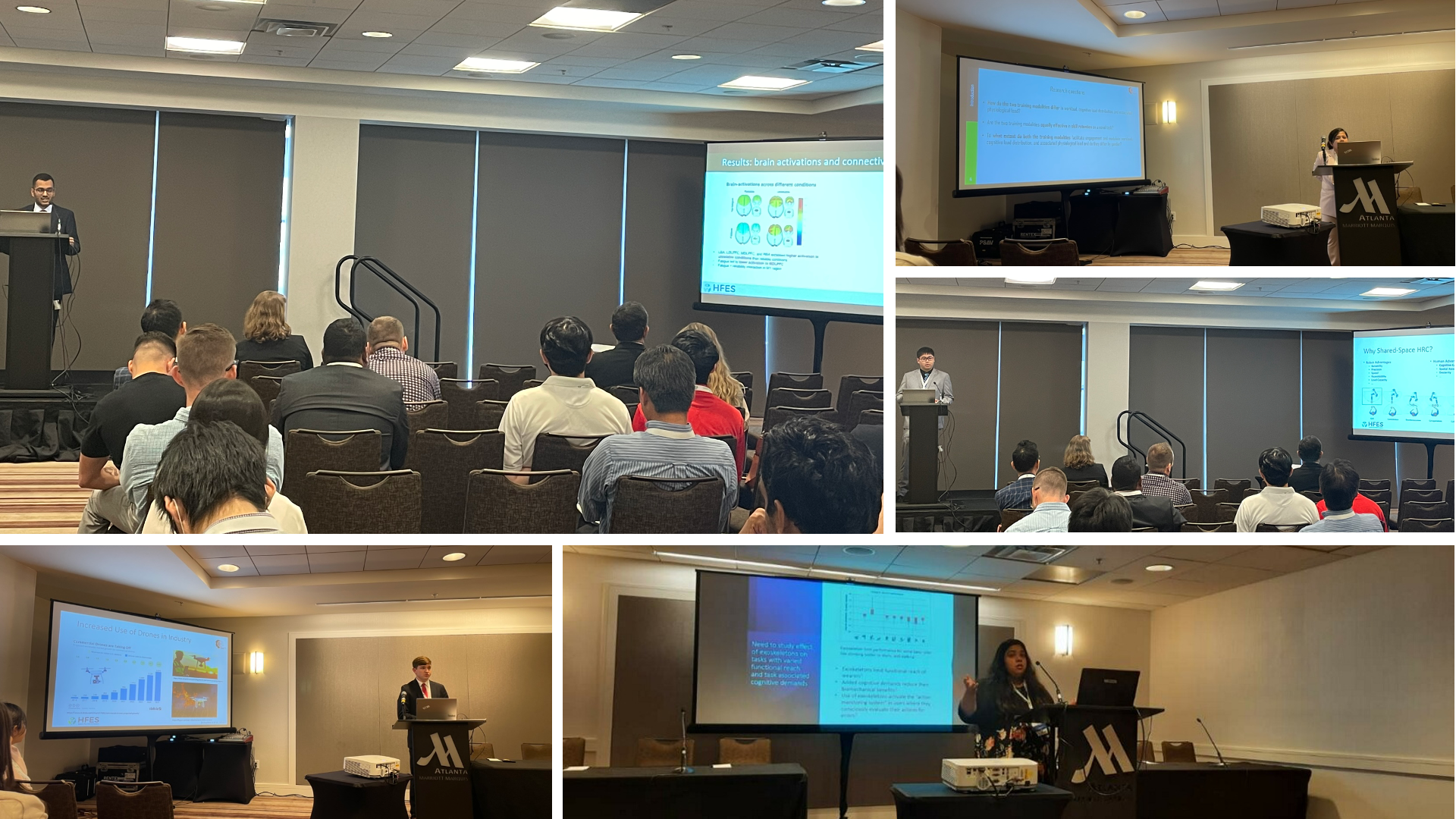
Tiash Rana Mukherjee and Yinsu Zhang also had the opportunity to showcase their work during the poster presentation session.
Tiash – “Neural, muscular and perceptual responses with Shoulder Exoskeleton use over days”
Yinsu – “Measurement and Analysis of Dynamic Trust in Automated Vehicles – Lessons Learned, Recommendations, and Pilot Results”
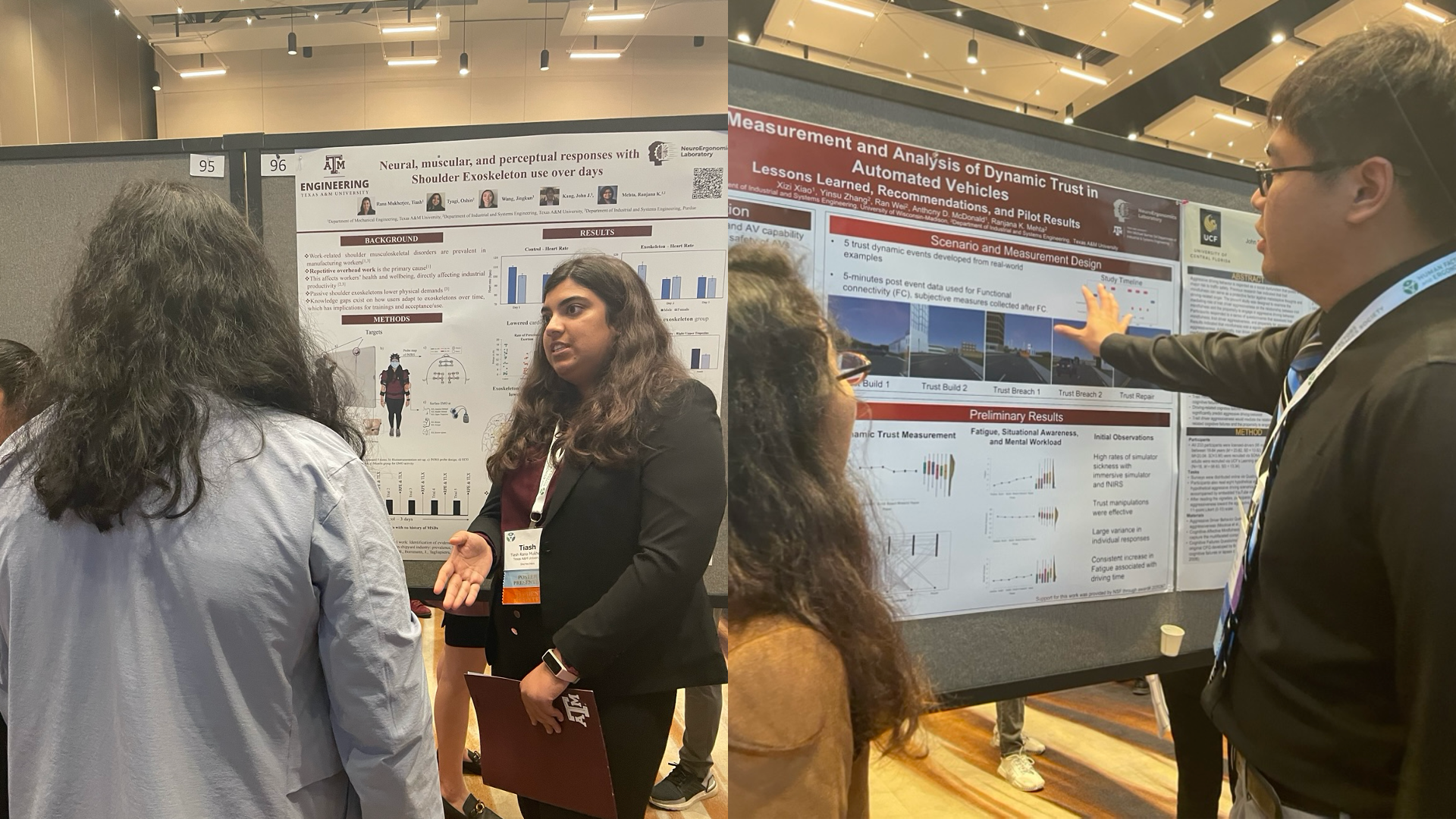
HFES held a poster session for Lab Posters. Lindsey Brenner was able to showcase the NeuroErgo Lab and how we examine the mind-motor-machine nexus to understand, quantify, and predict human state performance when interacting with emerging technologies in safety-critical extreme environments.
Lindsey Brenner, the lab project manager, was also elected as the Web Content Chair for HFE Woman (following Oshin Tyagi’s role).
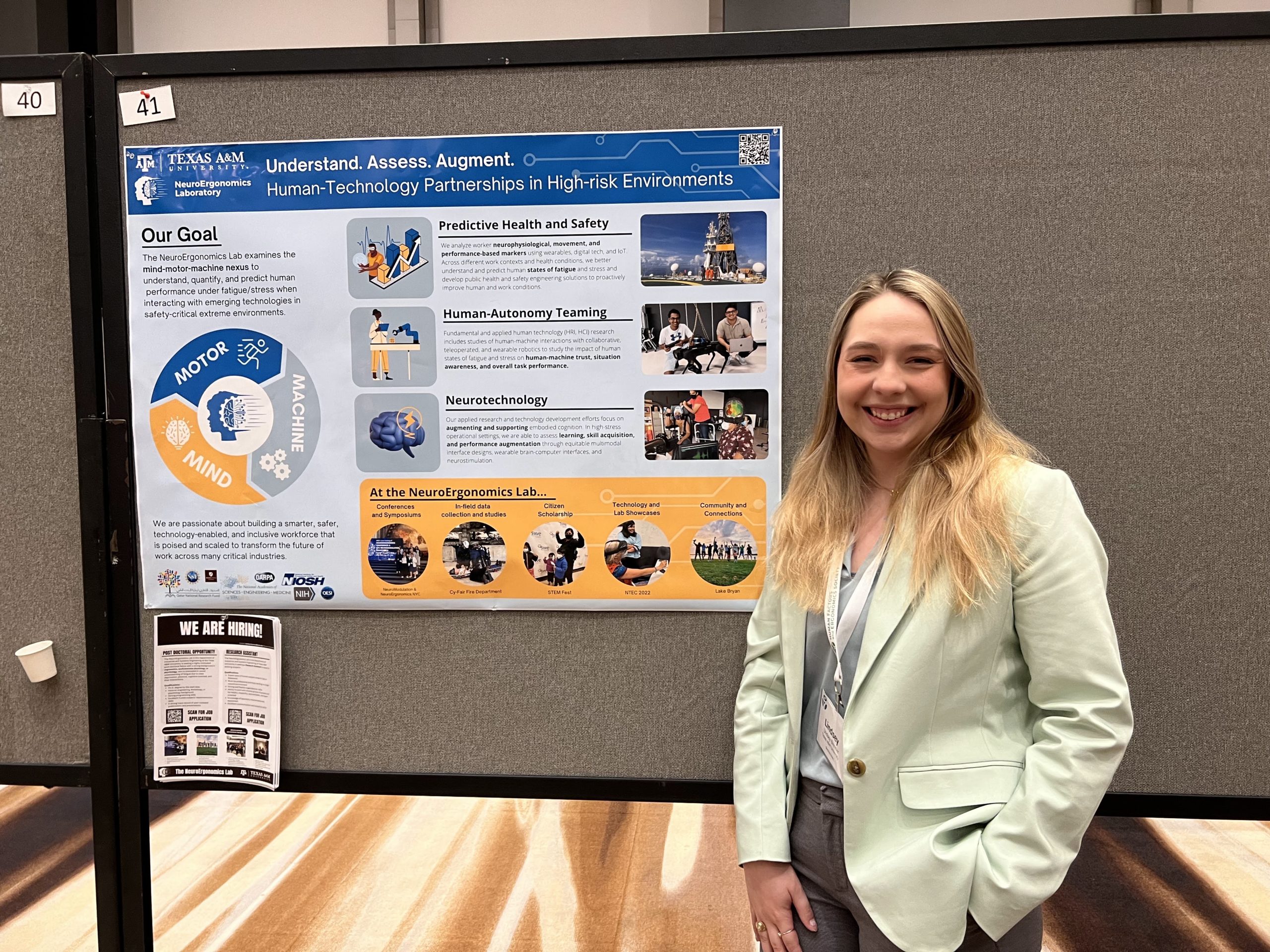
All in all – HFES was an eventful conference. The NeuroErgonomics Lab is forever grateful for the opportunity to share research and learn from our colleagues in Human Factors and Ergonomics. Each year brings new opportunities, new connections, and new research questions. Congratulations to those who were recognized for their achievements and presented their work. See you next year in Washington DC!
